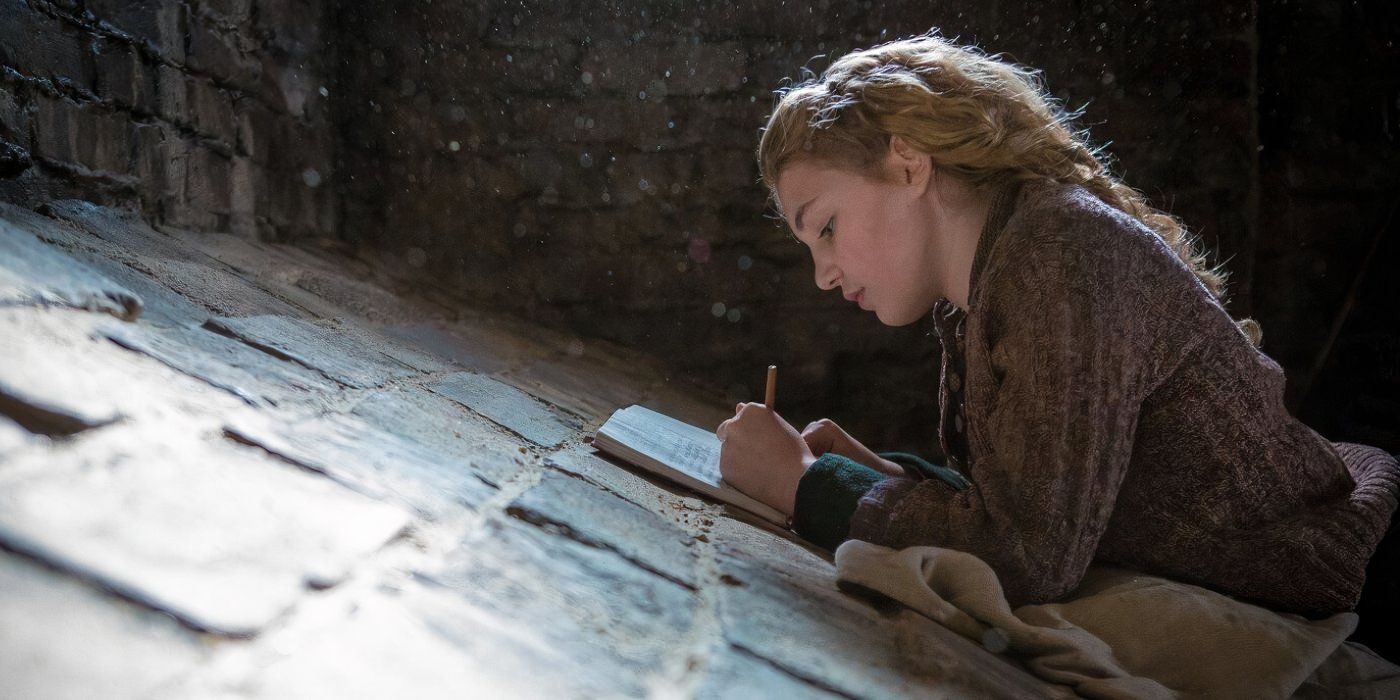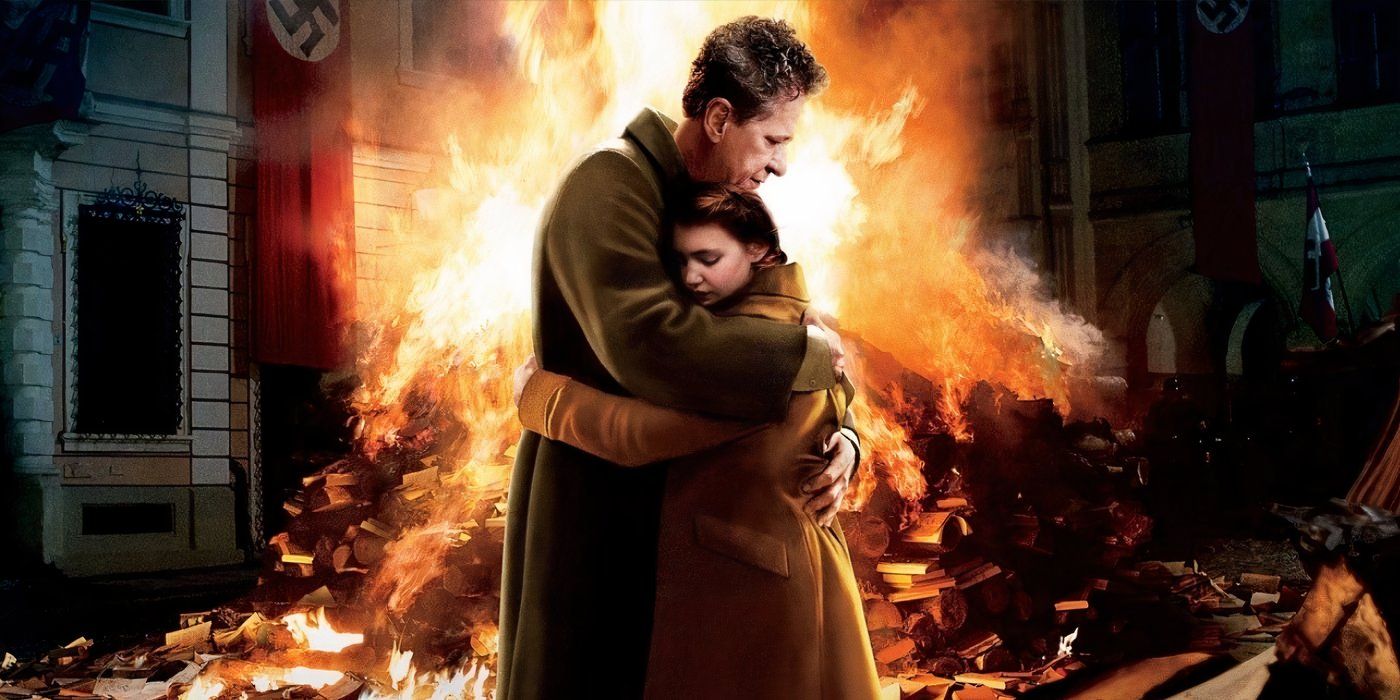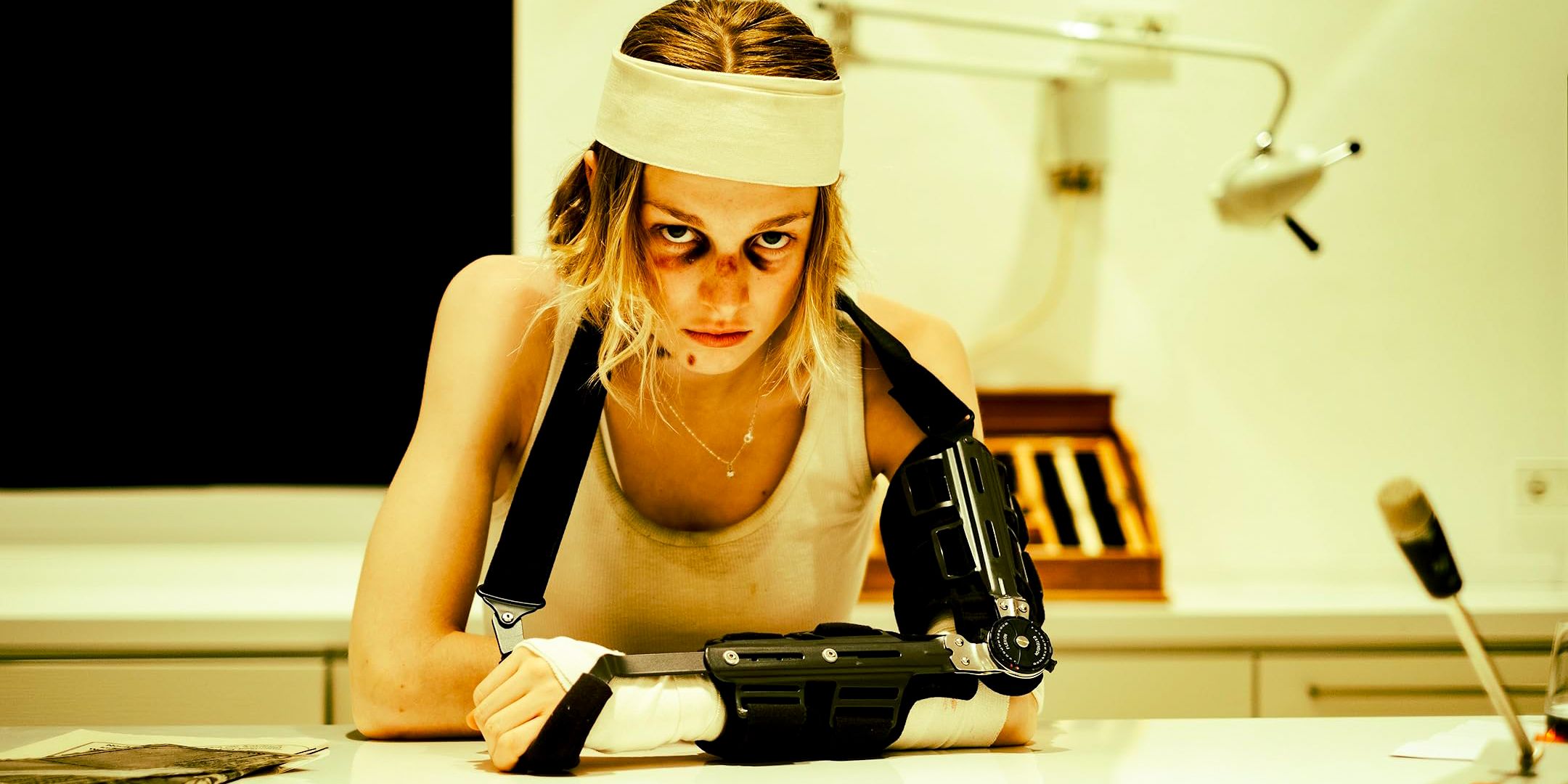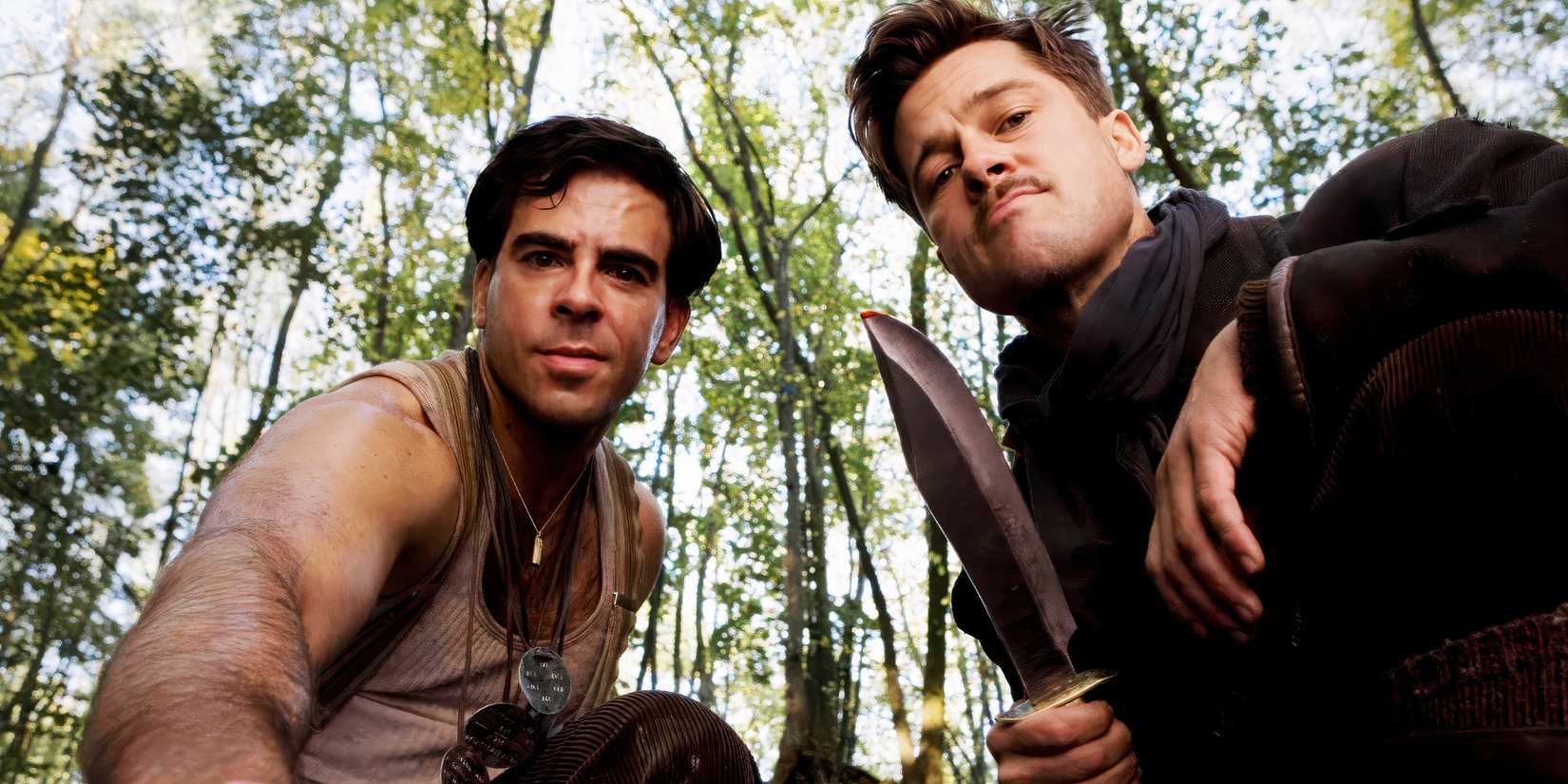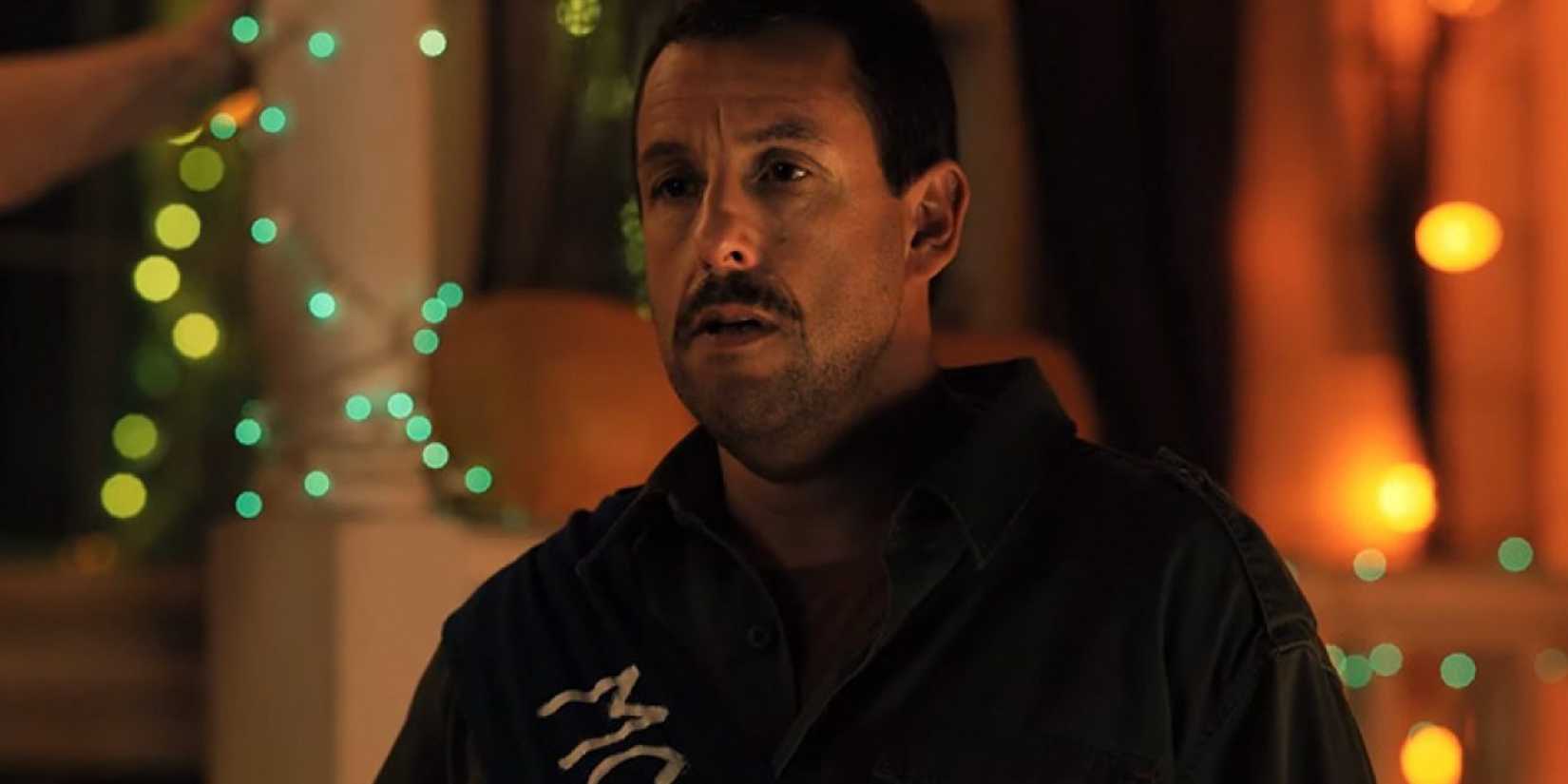The movie adaptation of Markus Zusak’s novel, The Book Thief, received mediocre critical reviews and should have been a TV series. The book is likely to become a classic and is set in Nazi Germany. It tells the story of Liesel, who is orphaned and taken in by a family who fulfills an old promise by hiding Max, a Jewish man, in their cellar. Liesel makes friends with Max while developing the strange habit of stealing books. Though the book won multiple awards, the movie is one of the worst book-to-movie adaptations and does not do it justice.
The movie was praised for its excellent performances by Geoffrey Rush and Emily Watson, with a Variety review saying, “Rush generously provides the movie’s primary warmth and humor; Watson is pitch-perfect...” That said, there were many criticisms of the movie’s depiction of the horrors of war. The Book Thief is far from being an accurate WWII movie, but even so, it skims over the most disturbing details, which are essential to the novel. While it was well-received by audiences, it received a 50% critical score on Rotten Tomatoes and would have made a better TV series.
The Book Thief Made Significant Plot Changes For The Movie Adaptation
The Movie Simplified One Of The Book’s Most Interesting Characters
The Book Thief is an amazing book about books, but this makes it extremely complex. The movie adaptation made significant changes, simplifying the story and quickly resolving the tension. In The Book Thief movie, Rudy finds out that Liesel’s family is hiding Max early on, but Liesel keeping this secret from her best friend is a major storyline in the book. The Book Thief adaptation also leaves out characters like Hans and Rosa’s adult children, which makes the plot easier to follow but removes the perspectives of other characters, taking away one of the book’s most important features.
The Book Thief shows the horrors of WWII and the Holocaust from the perspectives of many characters, relying on tiny details to illustrate this. Max dreamed of becoming a boxer, and he often fantasized about fighting Hitler in a boxing ring. The movie’s decision to make Max more philosophical made him more of a two-dimensional character without the insight and righteous anger that the book showed. Removing the complicated relationship between Ilsa and Liesel also did neither character justice. When Liesel was eventually adopted by Ilsa, readers understood their dynamic, while viewers never got to see their best moments.
Ilsa Hermann is one of the most interesting characters in The Book Thief novel, as she is suffering an immense loss while seemingly wealthy and privileged. Liesel finds Ilsa strange, as she rarely leaves her freezing cold house, preferring to stay inside, wearing thin pajamas that barely seem to warm her. Over time, the reader learns that Ilsa’s son, Johann, died during World War One, and she imagines that he died in a cold field. Keeping herself cold was her way of punishing herself, though there was nothing she could have done to save him.
One of the main themes in The Book Thief novel is small kindnesses, and Ilsa employs Rosa to do her laundry even though she doesn’t need her. She also allows Liesel to read from her personal library when she sees her stealing a book from a mᴀss book burning. As the mayor’s wife, Ilsa’s power could have ruined the Hubermann family, but she uses it to help them, even adopting Liesel in the end. The Book Thief movie removes most of Ilsa’s complexity, which makes her less compelling and dilutes the novel’s central themes.
The Book Thief’s Movie Adaptation Skimmed Over The Violence & Pain From The Book
Adapting The Book Thief’s Story Was An Extremely Difficult Project As Its Narrator Is So Unusual
The Book Thief novel shows the fear of the Nazi regime through its tiny details, like Rudy being punished for liking the Black athlete Jesse Owens. Similarly, the adaptation should have been a movie that showed horrific depictions of war through those small moments. That said, its tone was drastically different, telling an uplifting story, with Liesel finding the words to express herself as her reading confidence improved. The movie failed its subject matter by barely showing any Nazi brutality, even removing the book’s scene in which Hans is whipped for giving bread to a Jewish man.
The Book Thief is narrated by Death.
Though The Book Thief is easy to read, with a relatively simple layout and short chapters, it is not a straightforward story. Many parts are told through characters other than Liesel, and part of the book is a story within a story, as Max gives Liesel a book that he made. This part is one of the most heartbreaking moments in the novel, but was cut from the movie. To complicate things further, The Book Thief is narrated by Death. Roger Allam voices the role in the movie, but as everyone imagines Death differently, no actor could satisfy every reader.
An R-Rated Series Would Have Done Justice To The Book Thief’s Story And Characters
The Book Thief Was More Popular With Audiences Than Critics
By condensing The Book Thief into a movie lasting just over two hours, its impact and character development were lost. The book includes graphic descriptions of the horror brought by the Nazi party and their sympathizers, and to sanitize the story, as the movie did, does the victims of the war a disservice. It seems likely that the details were softened and characters flattened to give the film its PG-13 certificate. This was a bad choice, and an R-rated TV series would have allowed the characters to shine in the necessary dark setting.
While some TV shows accurately capture the horrors of war, many stick to a realistic setting. The Book Thief‘s unusual story could give existing fans of the war genre something new while introducing new fans to the war genre. The movie might not have been popular with critics, but Rotten Tomatoes audiences gave The Book Thief a 73% positive rating, so a TV series would be perfect for people who want to see more of the characters. The enduring theme of fighting evil is still relevant today, so it is time that justice was done to The Book Thief novel.
Source: Variety
